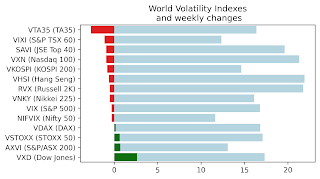I was reading Nerds on Wall Street, and came across the following paragraph:
Update: finished reading Whitcomb's book. No content that I found useful.
David Whitcomb, a market microstructure economist at Rutgers University and coauthor of a 1988 book on electronic trading strategies faced ... skepticism selling his ideas to Wall Street. Finding no institutional backing, he joined forces with a computer scientist colleague to found Automated Trading Desk (ATD) in the proverbial garage in Charleston, SC. The firm reportedly grew from its first trade in 1990 to one of the leading electronic market participants, trading on average more than 200 million shares daily, or 6 percent of the volume on both the NYSE and NASDAQ.Which got me interested in the Whitcomb's book. The work in reference - Transaction Costs And Institutional Investor Trading Strategies - proved to be quite difficult to find. It is not available for purchase anymore, and I could not find a local public library that carries the title. Thankfully a local university had one in their collection, and girlfriend borrowed a copy for me yesterday. Will keep you updated!
Update: finished reading Whitcomb's book. No content that I found useful.

